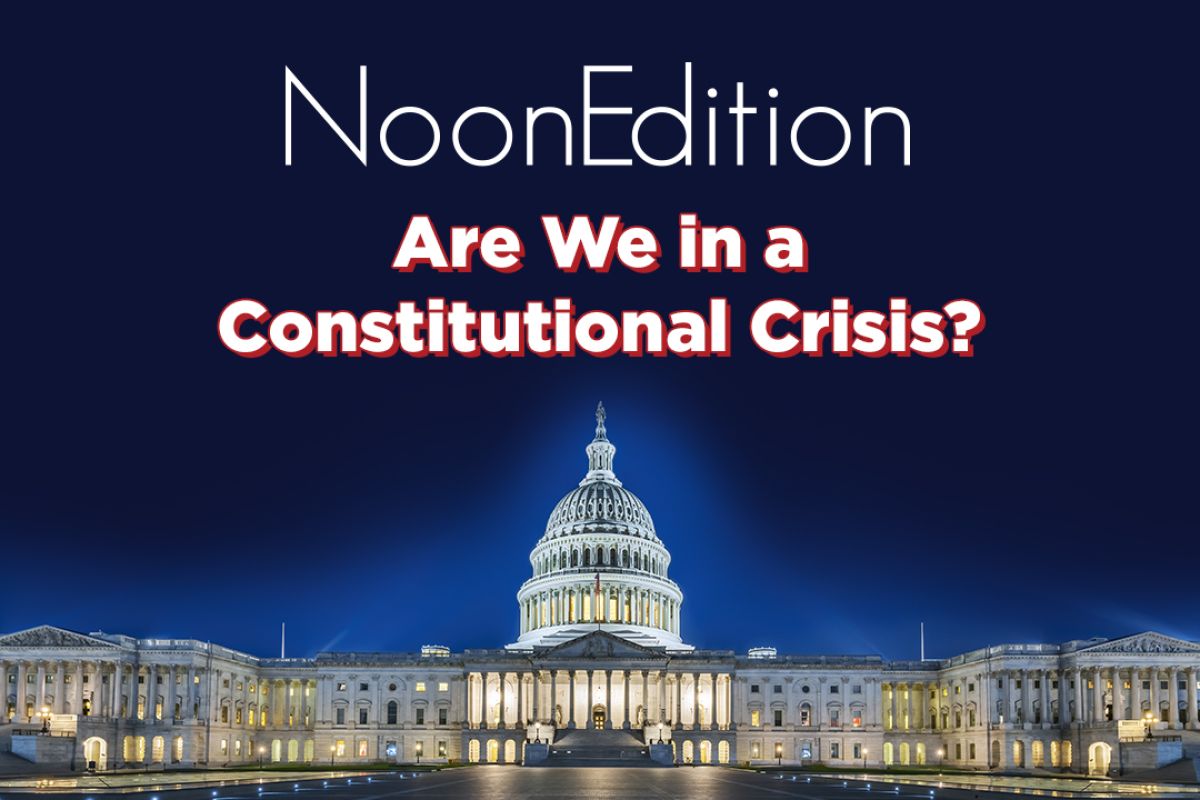
This Noon Edition will be held at the Indiana University Maurer School of Law. (Grant Shorter, WFIU/WTIU News)
During President Donald Trump’s first months in office, he signed more than 120 executive orders. The Financial Times reports that more than 100 legal challenges have been filed against these, including by federal judges.
Former president Joe Biden signed 162 orders during his 4-year term. During Trump’s term from 2017 to 2021, he signed 220 orders.
In eight years, Barack Obama signed 277 and George W. Bush signed 291.
Tensions between the executive and judicial branches have come as the executive orders extend presidential power, including in cases involving deportation without due process, freedom of speech, state’s rights, elections, federal aid, governmental operations, and federal governmental regulation.
Some of Trump’s orders– like firing of federal workers based on recommendations of the Elon Musk’s Department of Government Efficiency– have been upheld by the US Supreme Court.
Others, like altering birthright citizenship and banning transgender people in the military, have been blocked by multiple federal judges.
It’s not unusual for the judicial branch to prevent oversteps in executive power. A Supreme Court vote blocked former President Barack Obama’s executive orders to grant legal status to four million immigrants who had lived in the US for more than five years in 2016.
But legal experts say the number of orders issued, their scope, and the number that have been challenged are unusual.
Different political analysts and court experts have issued opinions about whether the United States is in a constitutional crisis. Google Trends indicates public interest in the issue has increased since January.
This week, we’ll ask legal experts for their analysis on the balance of governmental powers and the impact of recent executive actions on constitutional rights.
On this week’s Noon Edition, we’ll host a discussion about the perceived threats to the Constitution and civil liberties by the Trump administration and the state of Indiana.
This Noon Edition will be held at the Indiana University Maurer School of Law.
This event is free and open to the public. Guests should arrive to Room 121 by 11:30am for the live hour-long radio broadcast beginning at noon.
Call-in questions will not be available during this episode, but we'll take questions from the audience in attendance as well as through email at news@indianapublicmedia.org.
Guests
Steve Sanders, Professor of Law at Indiana University and constitutional scholar
Christopher Daley, executive director of the ACLU of Indiana
Daniel O. Conkle, Robert H. McKinney Professor of Law Emeritus at Indiana University






